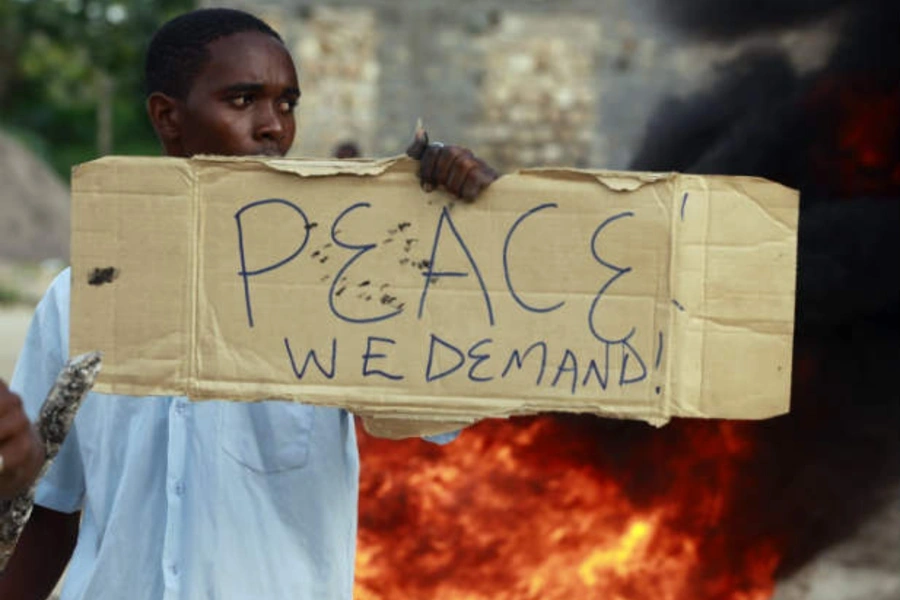More on:
This is a guest post by Amanda Roth, volunteer intern for the Council on Foreign Relations Africa program. She is a graduate student at Columbia University’s School of International and Public Affairs (SIPA), where she studies international security policy.
Earlier this week, at least forty-eight people were killed while watching the World Cup in Mpeketoni, Kenya. Less than twenty-four hours later, fifteen people were killed in the nearby town of Poromoko. Combined, the two attacks were the deadliest in the country since the Westgate mall attack in September 2013.
The militants allegedly attacked a video hall where viewers were watching the games before going door-to-door, asking residents if they were Muslim and shooting or slitting the throats of men who were not. The day after the attack, Kenyan president Uhuru Kenyatta declared that the violence was not the work of militant group al Shabaab, but rather “local political networks” within the country.
This seems unlikely. Al Shabaab immediately took credit for the attack, and the violence is consistent with previous al Shabaab threats and actions—for example, the group bombed two World Cup viewing parties in Uganda in 2010 as retaliation for the Ugandan military’s involvement in Somalia. Threats of similar attacks against Kenya have been made since the Kenyan military invaded Somalia in 2011. And as Matthew Bryden, former head of the UN monitoring group on Somalia, has observed, al Shabaab has never claimed responsibility for attacks they didn’t commit.
Kenyatta’s allegations are most likely political posturing, a continuation of his longstanding battle with political rival Raila Odinga. But even if the attacks were the result of “well planned, orchestrated, politically motivated ethnic violence” incited by “reckless leaders,” Kenyatta should be cautious as his administration responds to this most recent wave of violence.
As Paul Hidalgo recently noted in Foreign Affairs, the Kenyan government’s own recklessness may be its greatest enemy as it seeks to counter the growing al Shabaab threat. Retaliatory attacks on ethnic Somalis and scapegoating of Muslims have contributed to growing radicalism in Kenya and a rise in homegrown terrorism.
Moderate Muslims feel unjustly targeted, and the increase in violence has made residents of all religions increasingly fearful for their safety. The country’s security forces are largely ineffective, accused of summary executions and indiscriminate human rights violations. Kenyatta himself accused police of having information on this week’s attacks and failing to act. Furthermore, the rise in terrorist attacks has led to foreign government warnings against travel to Kenya, leading to a precipitous drop in tourism numbers. The accompanying loss of revenue and employment may further incentivize desperate youths to join radical groups.
President Kenyatta’s accusations are a continuation of the ongoing politicization of the crisis, but now is not the time. The Kenyan government should be focused on strengthening and professionalizing the security services, securing the border with Somalia, and closely examining its policies toward Mogadishu and al Shabaab. It should also be cautious not to exacerbate the ethnic tensions that led to widespread violence following the 2007 elections. At this crucial time for Kenya, the government’s leadership is more important than ever, and Kenyatta should choose his words carefully.
More on:
 Online Store
Online Store
